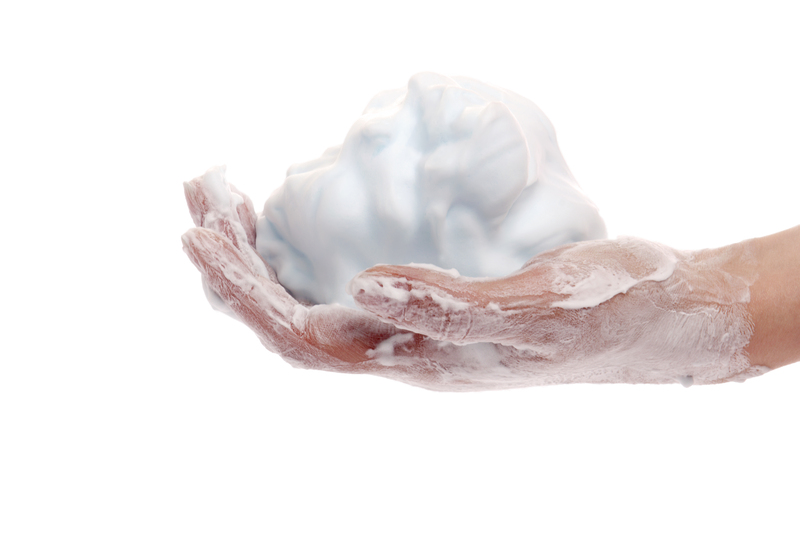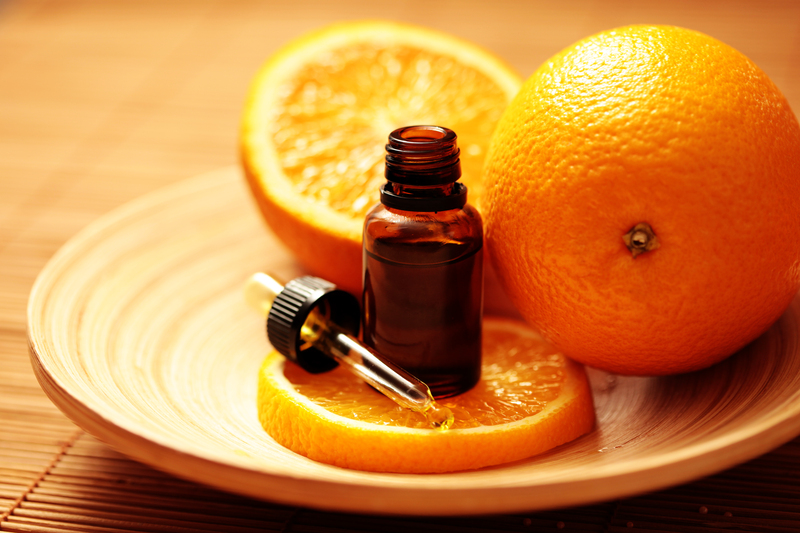A Guide to Pristine Velvet Curtains Through Proper Washing
Posted on 03/06/2025
A Guide to Pristine Velvet Curtains Through Proper Washing
Velvet curtains bring an air of luxury, elegance, and warmth to any room. Their sumptuous texture and vibrant colors make them a favorite for both traditional and modern interiors. However, maintaining the integrity and beauty of velvet requires careful and proper washing techniques. In this comprehensive guide, we'll delve into every aspect of keeping your velvet drapes in immaculate condition through optimal cleaning methods. From preparation to drying, you'll discover best practices, cleaning tips, and key dos and don'ts to ensure your velvet curtains remain pristine for years to come.

Why Velvet Curtains Need Special Care
Unlike other fabrics, velvet is woven from tightly twisted fibers that create its signature dense pile and soft sheen. This unique structure makes velvet vulnerable to crushing, matting, shrinkage, and staining if not cared for correctly. Washing them improperly can permanently ruin their appearance. Understanding the specific needs of this luxurious textile is crucial for preserving its beauty and texture.
- Sensitive fabric: Velvet's nap can easily be crushed or distorted.
- Prone to water damage: Some velvet types react poorly to excessive moisture.
- Susceptible to color fading: Harsh detergents and sunlight can strip away vibrant hues.
- Can harbor dust: The thick pile can trap dust, pollen, and odors over time.
Understanding Velvet Types
Before diving into washing techniques, it's essential to recognize that not all velvet fabrics are created equal. The washing method will depend on the type of velvet used in your drapes. Here are key types of velvet often found in curtains:
- Cotton Velvet: Has a rich, matte pile; prone to shrinkage and creasing. Requires gentle care.
- Silk Velvet: Exceptionally soft with a high sheen; extremely delicate and usually dry clean only.
- Synthetic Velvet: Made from polyester or rayon, this type is more durable and washable than natural velvets.
- Crushed or Embossed Velvet: Has a patterned or crumpled effect; follow the care label for specific washing guidance.
Tip: Always check the curtain's care label before cleaning, as some high-end velvet curtains may be labeled dry clean only.
Preparation is Key: Getting Ready for Washing Velvet Curtains
1. Read the Manufacturer's Label
Before taking any action, always refer to your velvet curtain's care label. The label typically indicates:
- If your curtains can be hand-washed, machine-washed, or should be dry cleaned.
- Water temperature recommendations.
- Which types of detergents are safe to use.
2. Test for Colorfastness
Colorfastness means the dye in the velvet will not bleed or fade when it comes into contact with water. To test:
- Dampen a white cloth with water and gently blot an inconspicuous area of the curtain.
- If the color transfers to the cloth, your velvet is not colorfast--professional dry cleaning is necessary.
3. Remove Dust and Debris
Before washing, shake out your curtains outdoors or vacuum with a soft brush attachment. This step prevents dust from embedding further into the pile during washing.
Different Methods to Wash Velvet Curtains
Hand Washing Velvet Curtains
Hand washing is generally the safest method for most velvet curtains, especially if the care label permits. Here's how to wash velvet drapes by hand:
- Fill a large basin or bathtub with cool to lukewarm water.
- Add a small amount of mild, gentle detergent for delicates.
- Submerge the curtains, gently agitate the water, and lightly swish them around.
- Do not wring, twist, or scrub velvet, as this will crush the fibers and ruin the nap.
- Let soak for 10-15 minutes, then drain the soapy water.
- Refill the basin and rinse the curtains by swishing them in fresh water until all detergent is gone.
Machine Washing Velvet Curtains
Some synthetic velvets (such as polyester velvet) may be safely cleaned in a washing machine:
- Use a delicate or gentle cycle with cold water.
- Place curtains in a mesh laundry bag to prevent damage from agitation.
- Use a low-suds, mild detergent.
- Do not overload the machine--the curtains need room to move freely.
- Skip the spin cycle if possible to reduce stress on the fabric.
Warning: Never machine wash silk or cotton velvets unless the care label specifies it is safe to do so.
Professional Dry Cleaning Velvet Curtains
For silk velvet, embossed velvet, and antique velvet drapes, always choose professional dry cleaning. This is the safest option to avoid irreversible damage.
- Inform your dry cleaner of any stains or spots.
- Point out special trimmings or embellishments that may require extra care.
- Request gentle handling and low heat during the process.
Stain Removal Tips for Velvet Curtains
How to Handle Fresh Spills
- Immediately blot the spill gently with a clean, dry cloth or paper towel to soak up as much liquid as possible.
- Never rub or press down hard, as this may push the stain deeper into the pile.
- For water-based stains, use a slightly damp cloth to dab the area, then blot dry.
Dealing with Stubborn Stains
- For greasy stains, sprinkle a little cornstarch over the spot and let it sit for 20-30 minutes, then gently brush it off.
- Use a velvet-safe upholstery cleaner according to the manufacturer's instructions, or seek advice from a dry cleaning professional.
- Always test any cleaner in a hidden area first to check for any adverse effects.
Never Overwet Velvet
Velvet fabric should never be drenched or soaked in water for long periods, as excessive moisture weakens the fibers and may cause texture loss.
Safe Drying Techniques for Velvet Curtains
Proper drying is as critical as the washing step when caring for velvet drapes. Incorrect drying can lead to shrinkage, distortion, and permanent damage to the fabric's lovely pile.
- Air dry only: Lay the curtains flat on a clean, dry towel or hang them over a wide, smooth rod. Never use a tumble dryer, as the heat and agitation will ruin the nap.
- Avoid direct sunlight: Place curtains in a shaded, well-ventilated spot, as sunlight can fade colors and stiffen fibers.
- Reshape and smooth: While damp, gently smooth out wrinkles or folds with your hands to help the velvet dry in its natural shape.
- Flip curtains occasionally to ensure even drying and prevent moisture from accumulating in folds.
Restoring the Pile: Fluffing Up Your Velvet Curtains
After washing and drying, some flattening of the velvet pile is normal. There are safe ways to restore the plush look:
- Use a soft-bristled clothes brush or a clean, dry towel to gently buff the surface in the direction of the nap.
- For tough creases, hang curtains in a steamy bathroom for 10-15 minutes (do not let them get wet) and then brush lightly.
- A handheld garment steamer on the lowest setting can be used--hold it a few centimeters away and lightly steam, then brush the fabric in the nap direction.
Routine Care to Keep Velvet Curtains Pristine
Regular maintenance drastically extends the life and appearance of your velvet drapes. Here's how you can keep them looking beautiful between washes:
- Vacuum curtains weekly with a low-suction setting and a soft brush attachment to remove dust and prevent buildup.
- Shake curtains gently whenever you clean the room to help keep the pile fluffed.
- Avoid spraying air fresheners, glass cleaners, or perfumes near your curtains to prevent accidental staining.
- Protect curtains from prolonged direct sunlight to prevent fading and deterioration of the nap.
- Rotate or reposition your curtains periodically so that wear occurs evenly.
Common Mistakes to Avoid When Washing Velvet Curtains
- Using hot water - Hot temperatures can shrink and damage the fibers.
- Employing harsh detergents or bleach - These can discolor or weaken the fabric.
- Wringing or twisting - This can distort the nap and ruin the appearance.
- Overloading the washing machine - Crowding prevents proper cleaning and increases friction damage.
- Skipping spot tests - Always check for colorfastness and cleaner compatibility beforehand.
- Using a tumble dryer - Heat will destroy the velvet's plush texture.

Frequently Asked Questions About Washing Velvet Curtains
-
Can all types of velvet curtains be machine washed?
No. Only synthetic velvets may handle gentle machine washing. Silk and cotton velvets usually require hand washing or dry cleaning. -
What kind of detergent should I use?
Opt for a mild, liquid detergent formulated for delicates. Avoid powders, fabric softeners, or bleach. -
How often should velvet curtains be washed?
Velvet curtains should be washed only when visibly soiled or once every 1-2 years. Routine vacuuming and spot cleaning will keep them fresh longer. -
Can I iron velvet curtains?
Avoid ironing directly! Use a steamer or hang in a steamy room and fluff with a soft brush instead. -
What happens if I get water spots on velvet?
Allow them to air dry, then gently brush or steam the area to help restore the pile. For severe cases, seek professional help.
Conclusion: Enjoy Luxurious, Spotless Velvet Curtains
Your velvet curtains can remain a beautiful and cherished part of your home decor for many years if you follow the right care routine. The delicate nature of velvet demands special attention, but with proper washing, drying, and maintenance, you'll keep them looking as pristine and luxurious as the day they were hung.
Remember, the key to preserving the vibrant color and soft, inviting texture of your velvet drapes lies in gently handling them at every stage--from preliminary dusting to careful spot cleaning and thoughtful drying techniques. When in doubt, always consult a cleaning professional to ensure the longevity and gorgeous appearance of your velvet curtains.
For more home care tips and to keep your interiors looking fabulous, stay tuned for our expert advice on textiles and luxury curtain maintenance!






 L. Kirk
L. Kirk 